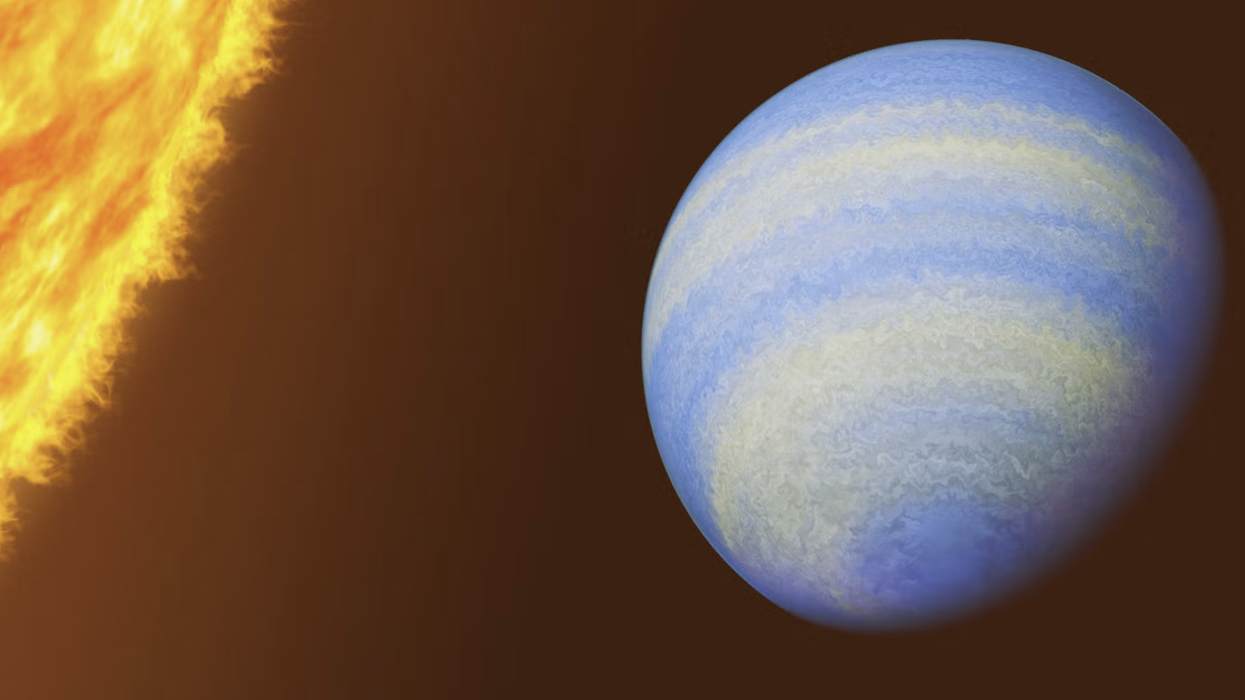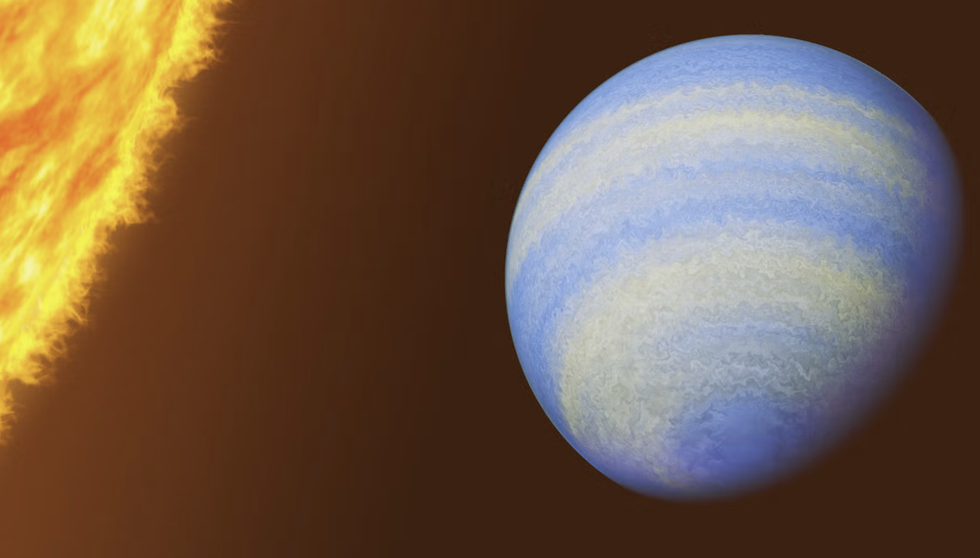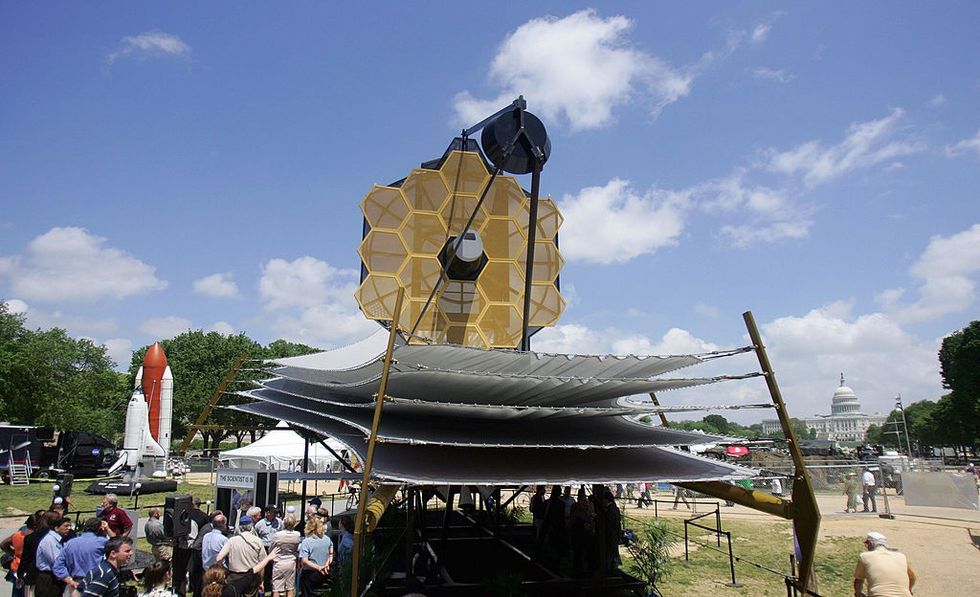Distant planet lets off huge stink and 'reeks of rotten eggs' say scientists

HD 189733 b reportedly smells like farts | Roberto Molar Candanosa/Johns Hopkins University

HD 189733 b emits the same gas found in human farts
Don't Miss
Most Read
Latest
A new study has suggested a faraway planet stinks of rotten eggs and has rubbish weather.
The atmosphere of HD 189733 b, which has scorching temperatures and precipitation akin to raining glass, consists of mostly hydrogen sulphide.
The gas, which is also found on Jupiter, is also emitted during farts. Finding it here is one of the first detections of hydrogen sulphide on an exoplanet - or planet outside of our solar system.
The planet also has scorching temperatures and precipitation akin to raining glass, according to the study.

HD 189733 b reportedly smells like farts
|Roberto Molar Candanosa/Johns Hopkins University
Astrophysicist at Johns Hopkins Dr Guangwei Fu said: "So, if your nose could work at 1,000C ... the atmosphere would smell like rotten eggs.
"Yes, the stinky smell would certainly add to its already infamous reputation. This is not a planet we humans want to visit, but a valuable target for furthering our understanding of planetary science."
Although hydrogen sulphide is one of the gasses that indicate that distant planets might be home to alien organisms, researchers do not believe there is any life on this planet due to its temperature and the fact it is a gas giant, like Jupiter.
However, scientists working on the research said finding hydrogen sulphide here is a development to understanding how planets form. Research was undertaken by using data from the James Webb Space Telescope.
LATEST DEVELOPMENTS:

A full scale model of the James Webb Space Telescope
|Getty
The telescope is opening up a new vista in analysing the chemicals in faraway planets and so helping astronomers learn more about their origins.
Dr Fu said: "It's been quite a game changer.
"It's really revolutionising the field of astronomy. It has delivered the capability promised and it even exceeded our expectations in certain ways."
The researcher plans to use information from the space telescope to study more planets.
It comes as scientists are eagerly studying a new Chinese lunar probe that has returned to Earth with the first-ever samples from the Moon’s far side.
The probe landed within one of the oldest craters on the lunar surface on Sunday, then spent two days gathering rock and soil samples using its robotic drill arm.
After successfully gathering its samples with a robotic arm, "a Chinese national flag carried by the lander was unfurled for the first time on the far side of the moon", the China National Space Administration (CNSA) said.










